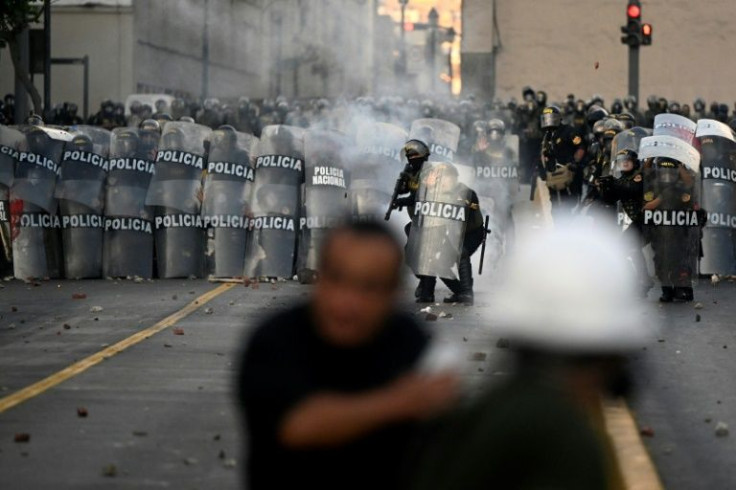Peru has been facing a political crisis that has included deadly crackdowns by its government on its citizens. Now, the Peace Corps has evacuated its volunteers from the South American country.
The relocation was confirmed by Troy Blackwell, who is a spokesperson for the Peace Corps, reported Politico. Without revealing the destination, he said that Peace Corps/Peru has "temporarily evacuated all volunteers to another Peace Corps post." He shared that the safety, as well as well-being of Peace Corps volunteers, is their "top priority." They are closely monitoring the "security situation with local partners on the ground and the U.S. Embassy in Lima.”
A source said that the volunteers are headed to the Peace Corps post in Ecuador.
This comes following weeks of unrest against a government that has taken over after a failed coup attempt in December 2022 by a Peruvian president facing impeachment. Peru has had a politically tumultuous few years, with several presidents amid corruption and other scandals.
As for Peace Corps volunteers, they often work in areas far from national capitals and with less immediate protection than U.S. diplomats. It means that they are sometimes the first group of U.S. workers to be evacuated when unrest begins. The U.S. has issued some travel alerts for Peru, but there’s no current indication that the U.S. Embassy in Peru or other government agents are leaving the South American country.
The Peace Corps first launched a program in Peru in 1962, and for the next 13 years, more than 2,600 volunteers worked in city planning, health and nutrition, social work, agricultural extension, elementary and secondary education and earthquake reconstruction. With a main office in Lima, it had regional offices in Cusco, Puno, Chimbote, and Arequipa. In 1975, Peace Corps exited Peru due to political and economic instability. Then in 2001, then-President Alejandro Toledo invited them to come back to Peru.
Analysts think that the situation in Peru, and the conditions that allowed Peace Corps volunteers to work there, are not going to get better. Jo-Marie Burt, a professor of Latin America studies at George Mason University, said that the government has doubled down on the crackdowns, and things are "going to get worse before they get better.”

© 2025 Latin Times. All rights reserved. Do not reproduce without permission.





